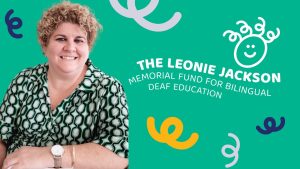How do I stay updated on the project as it progresses?
Stay updated directly by subscribing to our mailing list, open to all interested individuals. Updates are infrequent but useful. Click here to join the mailing list.
What is the purpose of the project?
We want to understand more about the experience of deaf students and people (hearing and deaf) working in primary and secondary schools who interpret and translate in classrooms.
What are the aims of the project?
The aim of this National Research project is to better understand the interpreting access received by signing deaf students in Primary and Secondary education.
This will be achieved by:
- Documenting the experience of deaf students in working with interpreters and understand the key themes
- Recording the current state of employment for people interpreting and translating in primary and secondary settings; their roles, functions and employment
- Identifying the key issues for people interpreting and translating and education support staff
- Providing insight and knowledge to inform policy and practice in the employment of interpreters and education staff.
Why is ASLITA doing this?
ASLITA support the use of formal research to investigate and share the experience of deaf students, interpreters and schools who work with educational interpreters, in order to inform policy and practices for the workforce.
How long is the project?
The research phase of this project is expected to be 18 months, commencing in 2024 and finishing late 2025.
Is ASLITA working with other stakeholders?
This project would not be possible without partnerships. Our key partners are The Leonie Jackson Memorial Fund; Deakin University and Deaf Australia.
Through the life of the project ASLITA will be reaching out to various stakeholders to inform the research as well as to provide advice and knowledge following the completion of the project.
Is ASLITA seeking input and representation from deaf organisations and individuals?
An advisory group containing representatives from a number key stakeholder groups will be established.
The advisory group will contribute insights and perspectives that enrich the project’s development and outcomes as well as provide strategic advice ensuring alignment with best practices and community needs.
What levels of Education does this research project cover?
Interpreters working in primary and secondary education is the primary focus. We recognise that interpreters may work in pre-primary and post-secondary as well, and that there may be overlap. We do not exclude the experience of other settings, simply putting our focus on primary and secondary.
Does your research project include interpreters working in TAFE or uni?
No. We are focussing primarily on primary and secondary education. Essentially, we want to know about interpreting with children.
If I want more information, who do I contact?





